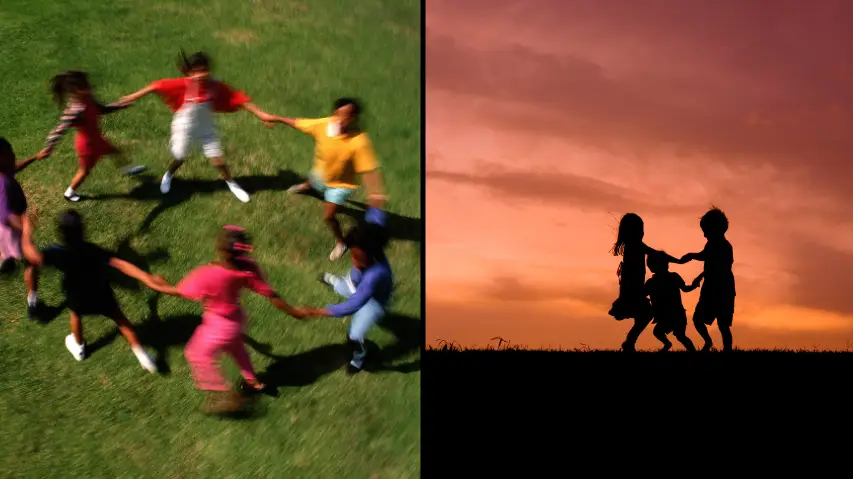
There's a seriously dark meaning behind nursery rhyme 'Ring a Ring o Roses' that might make you question why we used to sing it as children.
If you need a reminder, this is how it goes: "Ring-a-ring o' roses / A pocket full of posies / A-tishoo! A-tishoo! /We all fall down!"
If you went to school in America, the US version is slightly different: "Ring around the rosie / A pocket full of posies / Ashes! Ashes! / We all fall down!"
Advert
Now, there's a chance that the nursery rhyme - also known as 'Ring Around the Rosie' - could be a false folk etymology, which is described as the altering of the meaning of an unfamiliar term to categorise it with a better-understood one.
Basically, we're making it up as we go along.

However, in more recent times, nurseries up and down the country would teach toddlers the catchy rhyme, knowing full-well what it could mean.
Modern interpretation suggests that the popular nursery rhyme has often been associated with the Great Plague, which happened in England in 1665 to 1666.
It's thought that over 100,000 Brits died during that period as London lost roughly 15 percent of its population.
So, the whole 'we all fall down' part is about people, well, dropping down dead.
Although the lyrics have changed over the years, it seems there might be a good reason why we still sing them in schools.
Seth Lerer, dean of arts and humanities at the University California, San Diego, has shed some light on the topic.

“It is a way of completing the world through rhyme,” he told Today.com
“When we sing [them], we're participating in something that bonds parent and child.
“A lot of children's literature has a very dark origin.
“Nursery rhymes are part of long-standing traditions of parody and a popular political resistance to high culture and royalty.”
“The innocent tunes do draw attention away from what's going on in the rhyme; for example the drowned cat in 'Ding dong bell', or the grisly end of the frog and mouse in 'A frog he would a-wooing go',” music historian Jeremy Barlow, told the BBC.
“Some of the shorter rhymes, particularly those with nonsense or repetitive words, attract small children even without the tunes.
“They like the sound and rhythm of the words; of course the tune enhances that attraction, so that the words and the tune then become inseparable.
“The result can be more than the sum of the parts.”